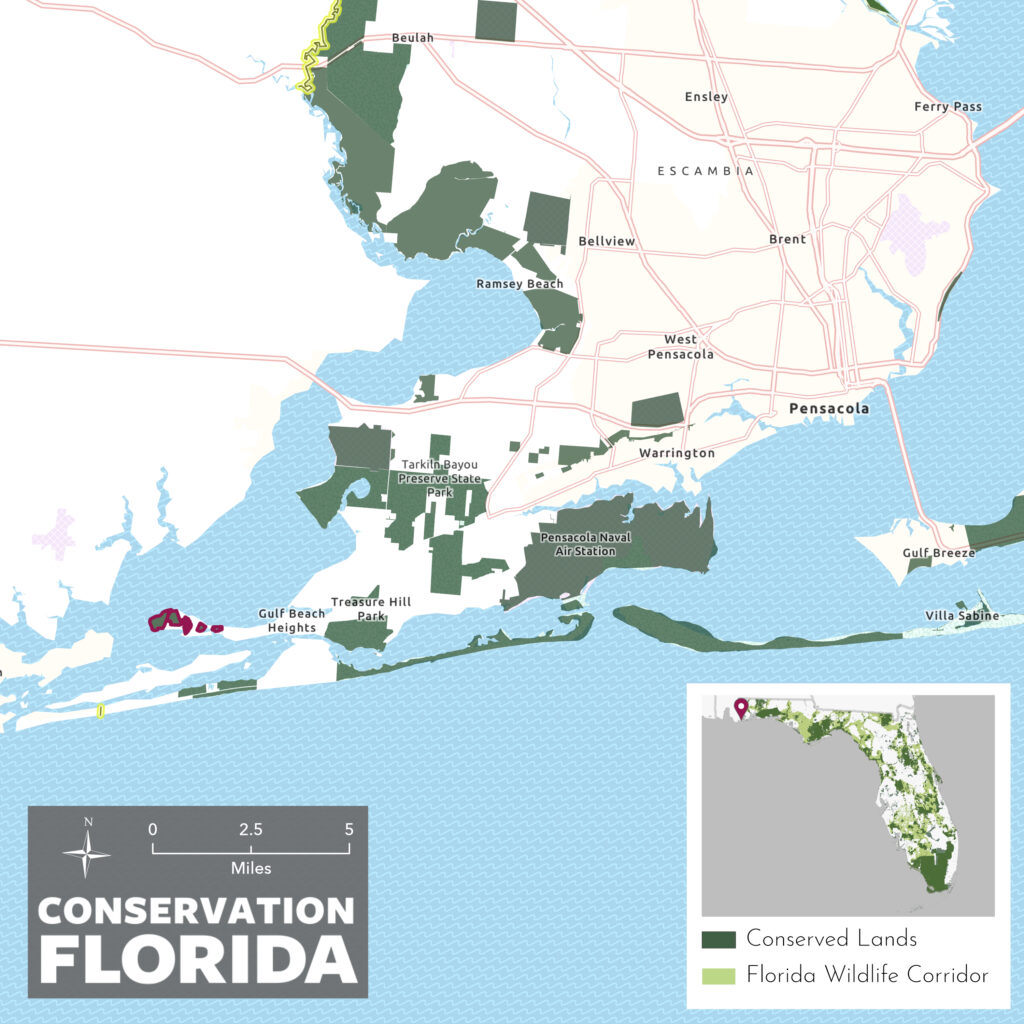By Morgann Rhule, The Invading Sea
More than 100 acres of coastal habitat in Escambia County has been conserved as part of efforts to protect Florida ecosystems facing pressure from development.

The statewide land conservancy Conservation Florida announced last week that it was protecting the land from development in partnership with the Innerarity Island Preservation Foundation. The land encompasses 101 acres on Innerarity Island, located less than a mile from the Florida-Alabama border.
The newly protected area will improve habitat connectivity, enhance water quality and protect endangered wildlife, according to Conservation Florida. The land also acts as a buffer against storm surge and sea level rise while protecting vital nursery habitats for species such as shrimp, crabs and juvenile fish.
“We are incredibly proud to conserve a part of Florida’s coastline,” said Conservation Florida CEO Traci Deen in a news release. “We’re grateful to conserve this land and deeply appreciate those who worked to see this conservation project through.”
Innerarity Island is home to various threatened and endangered species, including the Gulf sturgeon, white-topped pitcher plant and alligator snapping turtle. The island is located within the newly designated Pensacola and Perdido Bays Estuary of National Significance, which was approved by Congress in December.
The newly conserved land is expected to create opportunities for environmental education and research. Institutions such as the University of West Florida will have access to the area for conservation studies, helping to advance scientific understanding of coastal ecosystems and inform future preservation efforts.
“This conservation effort has been a long-term vision for our community,” said Dennis Geary of the Innerarity Island Preservation Foundation in a news release. “By permanently protecting this land, we ensure that future generations can experience the natural beauty of this coastal ecosystem while maintaining the environmental health of Perdido Bay.”
Morgann Rhule is a senior majoring in multimedia journalism at Florida Atlantic University who is reporting for The Invading Sea during the spring 2025 semester. Banner photo: A portion of the protected land (Photo by Michael Riffle, courtesy of Conservation Florida).
Sign up for The Invading Sea newsletter by visiting here. To support The Invading Sea, click here to make a donation. If you are interested in submitting an opinion piece to The Invading Sea, email Editor Nathan Crabbe at ncrabbe@fau.edu. To learn more about climate resilience, watch the video below.



